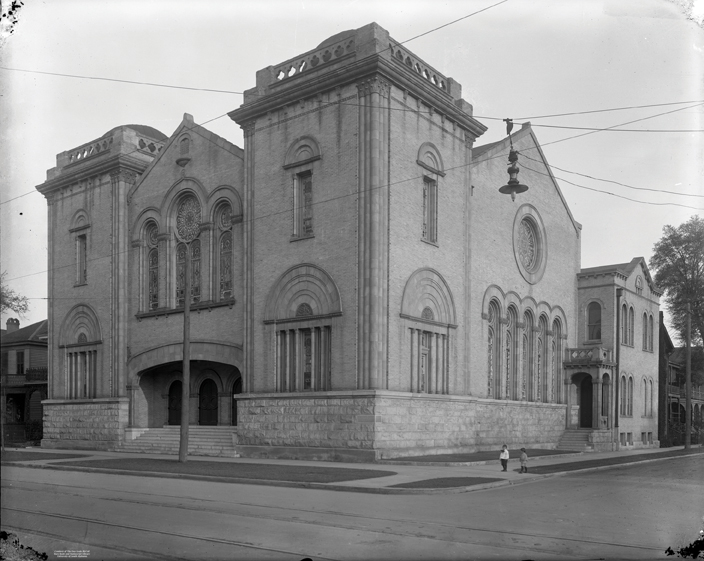
In the late 1800s, visitors who traveled to Mobile by ship, train or buggy would find themselves on Dauphin Street, where vendors would sell their wares and restaurants cooked up fresh oysters. Before long they would be drawn to the beautiful music exiting from 55 Dauphin Street: Joseph Bloch’s business, advertised in the Mobile Press-Register as an “Importer and Dealer in Music and Musical Instruments, such as Pianos, Violins, Guitars, Accordions, Brass Instruments, Italian Strings.”
Joseph Bloch was a man dedicated to his family, music and Jewish heritage. He was a simple man who encountered constant struggle in a vastly changing world. His musical gift and ability to share it with his community was one of the many ways Bloch supported his family. His perspective is unique in that he was not a wealthy man, but he nonetheless led the life of an entertainer — a musician who used his gift to survive the Civil War.

Bloch was forced to leave his home in Germany as a young man because of his political activities. Like many, he decided to come to America in search of a new life. After arriving in America in 1848, he was on his way to New Orleans to work as a winemaker — a far cry from the musician he wished to be. Bloch’s plans changed when he saw a lovely, sensible young Jewish girl, Hannah Goldstucker. “The ship stopped for three days in Mobile,” according to the Bloch family scrapbook. “My father was wandering in the town square when a girl caught his eye. ‘I will stay here and marry that girl!’ he said. He took his belongings, including a flute and guitar, off the boat, found lodgings and set himself up as a music teacher. He married the girl — my mother.”
Though he believed in the Union, Bloch had to make drastic decisions in a pro-Confederacy environment to support his family. He volunteered for the Alabama Home Guard and served as a bugler at the Battle of Mobile Bay to remain home during a time when the Confederacy was conscripting able-bodied men everywhere.
Goldstucker’s practical nature would end up saving the family from starvation during Union occupation of Mobile. According to the book “Mobile Under Siege: Surviving the Union Blockade,” “A 10 dollar greenback, sent home as a souvenir from the Battle of Shiloh, and hidden away (unpatriotically) by Hannah, stood the family in good stead when the Union Forces marched into Mobile and Confederate currency became worthless.”

After the war, Bloch began to work for the Spring Hill College department of music. During his eulogy on July 14, 1903, a friend commented, “Whenever I visited Spring Hill College, where he taught 37 years, I invariably heard the name of Professor Bloch pronounced upon the lips of his former friends with a feeling of reverence. As one of them said to me a few days ago, ‘We loved the professor, we could not help doing so.’”
Bloch’s legacy lives on through his descendants who remember him fondly today and through the music he wrote and shared with the world. Most of his compositions were parlor music, pieces that would have been played at soirees and parties with social dancing. His work, including “Jardin D’hiver (Winter Garden),” a polka, can be found at the Library of Congress, Spring Hill College Archives and Special Collections and the Minnie Mitchell Archives located at the Historic Oakleigh House in Mobile.

Deborah Gurt, assistant librarian and processing digital archivist; Paula Webb, USA libraries outreach and communications librarian; and professor David Meola, director of Jewish and Holocaust Studies worked together to bring Bloch’s unique story back to life. If you are interested in hosting the traveling exhibit, contact the Doy Leale McCall Rare Book and Manuscript Library at 341-3900.





